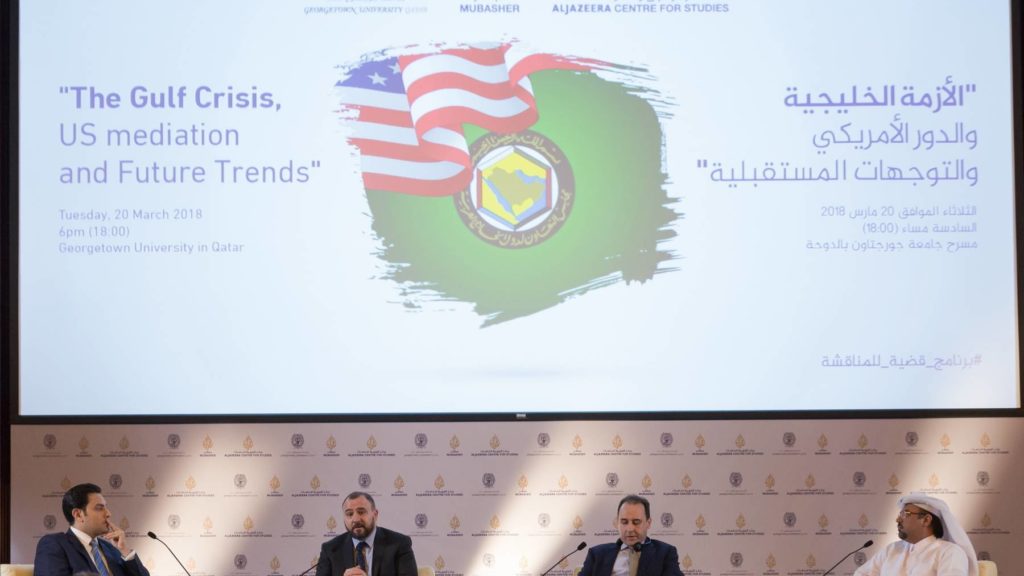Future of Gulf Crisis Explored at Al Jazeera and GU-Q Event

Experts from Georgetown University in Qatar (GU-Q), Al Jazeera, and Hamad Bin Khalifa University gathered to discuss the Gulf crisis and potential future developments at a recent seminar at GU-Q. Organized by the Al Jazeera Centre for Studies, the public event was held at Georgetown’s Education City campus on March 20.
Convened under the title ‘The Gulf Crisis, U.S. Mediation, and Future Trends’, the event focused on the proposed visit by Gulf leaders to the United States for talks to resolve the dispute. Speakers included journalist and political analyst Abdul Aziz Al-Ishaq, GU-Q’s Professor Rory Miller, and Professor Steven Wright, associate dean for academic affairs and research at Hamad Bin Khalifa University. It was moderated by Al Jazeera Mubasher’s Salem Almahroukey.
“In line with Georgetown’s commitment to fostering open dialogue and informed debate, this event brought broad perspectives on developments in the Gulf to the audiences from Qatar and the region,” said GU-Q Dean Ahmad Dallal. “We are happy to provide a platform to expand the public’s understanding of these issues and possible solutions, as part of our on-going contribution to the academic environment in Qatar.”
Director of Al Jazeera Centre for Studies (AJCS), Mohammed Mukhtar Al Khalil, pointed out that the seminar was held as the Gulf crisis enters its first year while still unresolved. He said: “We at AJCS were of the opinion that it is necessary to reconsider the variable factors of the crisis and to explore the prospects of resolution. One of these prospects, if held, is the U.S.-GCC Camp David summit next May.”
“By putting the matter to extensive discussion and analyses by experts and professionals during the seminar, we hope new perspectives are laid out on how to tone down the negative impacts of the crisis on the peoples of the region. It is also an opportunity to put forward more viewpoints of any possible détente, even if not currently looming large,” added Al Khalil.
Founded in 2005, GU-Q empowers students and shapes the human capacity that the MENA region needs for the 21st century. As part of this effort, GU-Q continuously produces major studies of regional and international significance, including multi- and inter-disciplinary research initiatives that study strategic, political, economic, and social realities in Qatar, as well as the geopolitical reconfigurations of the region and beyond. The University has organized several symposiums dedicated to understanding the geopolitics of the Gulf and the wider Middle East region.